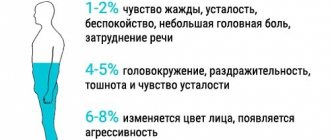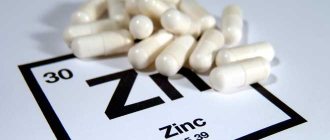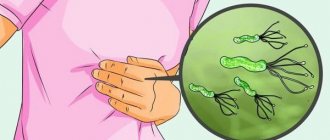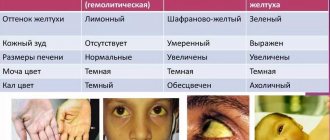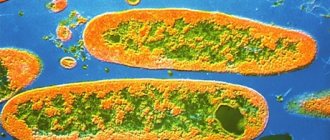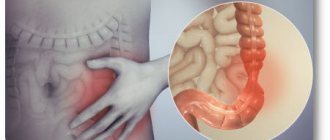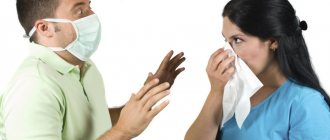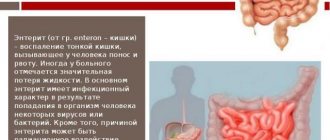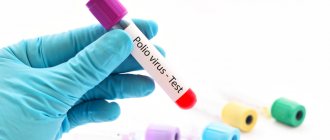INTOXICATION
(Latin in in, inside + Greek toxikon poison) - a pathological condition that occurs as a result of the action of toxic (poisonous) substances of endogenous or exogenous origin on the body. Accordingly, exogenous and endogenous poisoning are distinguished. The concept of “intoxication” is often identified with the concept of “poisoning”; in accordance with the terminology adopted in the USSR, only those P. that are caused by exogenous poisons are called poisoning (see Poisoning, Food poisoning, etc.).
The concept of “poisons” covers essentially all toxic substances in the environment that can, under certain conditions, cause poisoning in the body. Endogenous I. are united by the term “autointoxication” (see Autointoxication).
The first mention of poison as a cause of disease was found in Paracelsus, who distinguished diseases from internal and external poisons. The experimental study of I. in Russia is associated with the works of E. V. Pelikan (1878), who studied the pathogenesis of P. caused by certain poisons that have forensic medical properties. significance, and the school of V.V. Pashutin; V.V. Pashutin’s student S. Bocharov (1884) showed the role of decay products in the pathogenesis of I. in sepsis.
The classification of exogenous poisons is based on the nature of the poisons that cause them (poisoning with dichloroethane, arsenic, etc.) or products containing them (food poisoning). Endogenous I. are classified depending on the disease that served as the source of their occurrence (traumatic, radiation, infectious, hormonal I.), or physiol, systems, the disorder of the cut led to the accumulation of toxic products in the body (intestinal, renal I.).
I. usually occurs as a result of the action of toxic substances circulating in the blood; circulation of endogenous poisons in the blood is often referred to as toxemia (see), and circulation of toxins (see Toxins) - as toxemia. Terms are often used that indicate a substance that is in excess in the blood (albeit characteristic of the body) - for example, azotemia (see). The term “toxicosis” is sometimes used to name diseases caused by exogenous poisons, for example, nutritional toxicosis, proteotoxicosis (in case of poisoning with exogenous proteins). Toxicoses are sometimes called syndromes that develop as a result of excessive intake of a hormone into the blood, for example, of the thyroid gland - thyrotoxicosis (see), as well as during complications of pregnancy associated with the phenomena of autointoxication - toxicosis of pregnant women (see), etc.
Kinds
Depending on the method of penetration of the poison (toxin) into the human body, two types of intoxication are distinguished:
- endogenous – toxins are formed directly in the body itself;
- exogenous – toxins enter the body from the environment.
Severe intoxication is accompanied by serious damage to vital organs and systems.
According to the duration of contact with a toxic substance:
- hyperacute intoxication - a significant intake of toxin into the body, which leads to irreversible damage to the central nervous system and death within a few hours;
- acute intoxication – develops as a result of short-term or single contact of the body with a toxic substance and is manifested by severe clinical symptoms;
- subacute intoxication – disruption of body functions is caused by several repeated exposures of the toxin to the body; the clinical picture is less pronounced than in the acute form;
- chronic intoxication – its development is associated with chronic (long-term) exposure to toxins; occurs with a blurred clinical picture, and in some cases is practically asymptomatic.
Possible complications
Lack of timely treatment can lead to the development of the following complications:
- gastrointestinal perforation, bleeding, peritonitis;
- aspiration pneumonia;
- toxic shock;
- acute renal and liver failure;
- coma;
- death.
In the delayed period, negative consequences may occur such as:
- allergic reactions;
- complications during pregnancy (congenital deformities, fetal death);
- formation of malignant tumors;
- development of chronic diseases of internal organs;
- reproductive dysfunction.
Intoxication of the body is a dangerous condition that can lead to death. Symptoms in adults and treatment depend on the type of toxic substance causing the disorder. The most important factor determining the success of therapy is the accurate identification of the cause of poisoning and timely provision of first aid to the victim.
Article design: Mila Friedan
Causes
Exogenous intoxication can be caused by exposure to toxic substances of organic and inorganic origin. The following poisons most often cause poisoning:
- halogens (fluorine, chlorine);
- heavy metals and their salts (lead, mercury, cadmium, vanadium);
- arsenic compounds;
- beryllium;
- selenium;
- organophosphorus compounds (dichlorvos);
- paint and varnish products;
- poisons of animal (for example, snake) and plant (for example, mushroom) origin;
- toxins formed during the life of microorganisms (for example, causing foodborne illnesses);
- acids and alkalis;
- medications;
- alcohol.
Toxic substances enter the body through parenteral administration, through the mucous membranes and skin, gastrointestinal tract, and upper respiratory tract. In some cases, the development of intoxication is associated not directly with the substance itself that has entered the body, but with its metabolites, i.e., the products of its processing in the body.
The primary measure for treating intoxication is to stop further contact with the toxin and remove it from the body as quickly as possible.
The cause of endogenous intoxication is the formation of toxic products caused by extensive tissue damage. Such damage can result from:
- inflammatory processes;
- radiation injuries;
- burns;
- injuries;
- malignant neoplasms in the decay stage;
- some infectious diseases.
Source: otravlenie.su
Endogenous intoxication also develops in the event of a disturbance in the body's excretory processes, for example, renal failure is always accompanied by the development of uremic intoxication associated with the accumulation of urea and creatinine in the blood.
The cause of endogenous intoxication can be the body’s excessive production of biologically active substances (thyroid hormones, adrenaline). This explains the development of intoxication syndrome with thyrotoxicosis or chromaffin.
Metabolic disorders are always accompanied by the accumulation of toxic metabolites in the patient's body, causing endogenous intoxication. In liver diseases, free bilirubin, phenol, ammonia become such endogenous toxins, and in diabetes mellitus – ketone bodies.
Many pathological processes in the body are accompanied by the formation of toxic products of free radical oxidation of fats, which also leads to the development of endogenous intoxication.
Cleansing the intestines of toxins
Colon cleansing is carried out if there are already problems or for prevention, but not more than twice in 12 months. The cleaning procedure is necessary if there is an unhealthy lifestyle and over the age of 32 years. It is not recommended to self-medicate if you have chronic diseases.
Methods of intestinal cleansing are different, ranging from folk remedies to special medications, but regardless of the chosen method after the procedure:
- general well-being improves,
- extra pounds are lost, a feeling of lightness appears,
- sleep is normalized,
- appetite returns
Methods of colon cleansing using folk remedies
Colon cleansing at home using natural remedies is an affordable and effective way to get rid of accumulated waste and toxins.
Important. With constipation, a huge amount of carcinogens accumulate in the body, which lead to the development of cancerous tumors.
Table No. 2. How to cleanse your intestines of toxins:
|
|
|
|
| This natural substance is capable of absorbing all toxic substances, binding and removing them out. | The substance can be purchased at a pharmacy. The instructions describe in detail the required dosage for the cleaning procedure. | Along with taking microcrystalline cellulose, you need to drink a lot of purified water, at least 70 ml per kg of body weight per day. | |
| Bran is the rough outer shell of the grain. When they enter the gastrointestinal tract, they increase in size and remove fecal stones, toxic substances and waste from the body along with them. | Take 20 grams of bran with 200 ml of liquid. | The duration of the cleaning course is 30 days, three times a day. | |
| Has a mild laxative effect and anti-inflammatory effect. When flax enters the body, it increases in size and causes contraction of the intestines, due to which harmful substances are eliminated. | Pour 10 grams of seeds into 200 ml of boiling water and leave for 5-6 hours. | The infusion is drunk in the evening, after dinner. Cleansing course 30 days. | |
| Has a mild laxative effect. | Leave 200 ml of boiled milk in a warm place for 24 hours. Next, add a tablespoon of any vegetable oil to the yogurt. | Take before bedtime. The procedure is carried out several times a month. | |
| Mix chamomile, strawberry grass, St. John's wort and immortelle flowers in equal quantities. Infuse one tablespoon of herbal mixture in 600 ml of boiling water. | Take on an empty stomach in the morning and evening after dinner. The course of treatment is two weeks. | |
| In addition to the cleansing effect, the decoction has a beneficial effect on the entire gastrointestinal tract and the body as a whole. | Mix plantain, chamomile and marsh sushi in equal proportions. Infuse one tablespoon of herbal mixture with 500 ml of boiling water. | Take 100-150 ml in the morning on an empty stomach and in the evenings for 14 days. | |
| Drinking plenty of water will trigger the body's natural cleansing processes and improve intestinal motility, helping it cleanse itself. | Purified still water. | You need to drink at least 12 glasses throughout the day. | |
In addition to treating constipation and cleansing the intestines:
| Mix 75 ml of castor oil with the same amount of lemon juice (freshly squeezed). | Take the mixture on an empty stomach and after half an hour start drinking warm water (800 ml) in small portions until the third bowel movement. The procedure is carried out once. On this day, you should exclude heavy foods from your diet (fatty, fried, spicy) and eat plant-based foods and fermented milk. | |
| Mix one teaspoon of baking soda with 70 ml of warm water. | Take on an empty stomach, in the morning. The method is not suitable for diseases of the gastrointestinal tract, kidneys, liver and cardiovascular system. | |
| Available at the pharmacy. | The duration of the cleaning course is 1 week. Activated carbon should be taken 6-8 tablets, three times a day. The permissible maximum dose at one time is 1 tablet per 10 kg of body weight. | |
| Has a mild laxative effect | Mix dried apricots and prunes in equal proportions and grind into a paste. Add equal amounts of vegetable oil and honey to the mixture. | Take 3-4 spoons every evening. The course of cleansing is not limited. |
Important. Poisoning the body with waste and toxins leads to problems with excess weight.
Colon cleansing enema
An enema is not the most pleasant method of restoring digestion and cleansing the intestines, but it is the most effective. To clean, you need 3 liters of boiled water, cooled to 30°C.
It is very important to maintain the required temperature, otherwise removing toxins from the intestines with an enema will not bring results and will harm your health. Water that is too cold is absorbed by the walls of the organ and will not give the desired result, while water that is too hot will burn the mucous membrane.
Esmarch's mug is filled with liquid and hung at shoulder level. The patient takes a position on his knees and elbows and the tip of the hose is inserted into the anus.
At least two liters of water should enter the intestines and remain inside for at least 10 minutes. If discomfort occurs in the abdominal area, do a light pressing massage.
After the procedure and complete bowel movement there should be no discomfort, otherwise the procedure must be repeated.
For a cleansing enema, you can use not only boiled water:
- A decoction of sage, chamomile and mint herbs. Mix the herbs in equal proportions and chop. Pour two tablespoons of the mixture into 400 ml of boiling water, filter and add to the enema water. In addition to the cleansing effect, the herbal decoction will relieve inflammation of the mucous membranes.
- Boiled water and the juice of two lemons will help get rid of hardened stool. Lemon juice can be replaced with natural apple cider vinegar (2 tablespoons of vinegar per 2 liters of water).
- For two liters of water, add one tablespoon of honey and one tablespoon of lemon juice.
Important. Too frequent use of enemas leads to dysbacteriosis.
Colon cleansing drugs
Removing toxins from the intestines with drugs is a simpler procedure that does not require much time. Unlike an enema, medications affect all parts of the intestine and are easier to use. For the cleaning process, laxatives are used that act on the gastrointestinal tract, relieving spasms, thus removing hardened feces.
Before using laxatives on your own, you should consult a doctor. Many of the medications have contraindications and can be harmful to health. Taking laxatives for too long can lead to hypokalemia (low calcium in the blood) and chronic diarrhea.
Table No. 3. Medications for colon cleansing:
| Drug name | Action | Reception features |
| A laxative that irritates the motility of all parts of the intestine. | Four doses of the drug (4 sachets) are diluted in 4 liters of boiled water. Start taking the solution in the morning after breakfast, the first dose is 1 liter. After three hours - the next 2 liters and after another 2 hours the last liter of solution. The effect of the drug begins 2 hours after taking the first dose. At this time, discomfort may be felt in the abdominal area. | |
| The drug begins to act in the small intestine, diluting the stool. The medicine is not absorbed into the blood and has no contraindications. | A single dose of the drug, one sachet is dissolved in a glass of water and taken in the morning, on an empty stomach. Then, after 30 minutes, the next dose is taken and so on until the volume of liquid drunk is 3 liters. The effect of the drug will begin after 4 hours. | |
| Mild laxative based on lactulose. The drug acts directly in the large intestine. In addition to its cleansing function, Duphalac stimulates the growth of beneficial microflora and treats dysbacteriosis. | The dose of the drug is selected according to the instructions or as prescribed by the doctor. While taking the drug, you must drink at least 6 glasses of water per day. | |
| Improves peristalsis by stimulating the nerve endings of the colon and rectum. | The dose of the drug is prescribed by the doctor. Taking the medicine should not be combined with the consumption of dairy products, as they weaken its effect. | |
| It has no contraindications, enhances intestinal motility. | The dosage for adult patients is 10 drops. For children, the required dose is prescribed by the doctor. | |
An effective broad-spectrum laxative. It is used not only to cleanse the intestines, but also for:
| The dosage depends on the purpose of use and age. |
Signs of intoxication
Clinical signs of intoxication are varied. Their manifestation is determined by many factors, most importantly:
- chemical and physical properties of the toxin;
- affinity of the toxin for organs, tissues, cellular receptors;
- mechanism of toxin entry into the body;
- concentration of toxic substance;
- the frequency with which contact with the toxin occurs (one-time, repeatedly or constantly).
Against the background of intoxication, the functions of the digestive system in patients deteriorate, which is associated with a decrease in the secretion of digestive enzymes.
The severity of signs of intoxication largely depends on the personal reactivity of the patient’s body, i.e., on the proper functioning of the immune, excretory system, chemical endogenous detoxification system, and the state of internal and external barriers.
Acute intoxication is characterized by:
- intense headache;
- aches in muscles and joints;
- a sharp increase in body temperature to 39-40 ° C, often accompanied by chills;
- nausea and vomiting.
Exposure of a person to particularly toxic substances leads to damage to the central nervous system, the signs of which are convulsions, psychomotor agitation, disturbances of consciousness up to deep coma.
Symptoms of subacute intoxication are less pronounced than acute ones. Headache and muscle pain are moderate, body temperature rises to 37-38 °C. Patients complain of increased fatigue, drowsiness, and dyspeptic symptoms.
Signs of chronic intoxication are:
- irritability;
- depression;
- fast fatiguability;
- nervousness;
- sleep disorders (insomnia, interrupted sleep, daytime sleepiness);
- constant headaches;
- significant changes in body weight;
- severe dyspepsia (unstable stool, flatulence, belching, heartburn).
Chronic intoxication has a negative effect on the condition of the mucous membranes and skin, resulting in bad breath, dermatitis, furunculosis, and acne.
Intoxication causes weakening and dysfunction of the immune system, which causes an increase in the frequency of allergic, autoimmune and infectious diseases.
Methods of differentiation for intestinal infection and non-bacterial food poisoning
For proper therapy, it is necessary to correctly understand what caused the poor health.
Read
What kind of drug is “Filtrum – STI”?
Non-bacterial food poisoning has the following manifestations:
- A short latent period - the primary manifestations of the disease occur acutely, an hour or two after infection.
- High temperature is very rare, most often it is subfebrile.
- To treat a painful condition, it is enough to drink a lot, rinse the stomach and go on a diet. The rule works for all poisonings, except botulism. This diagnosis requires emergency treatment in a hospital setting.
- Taking antibiotics is not necessary. Restoring normal functioning of the digestive system is possible without medications.
Intestinal infections proceed differently; this condition is characterized by:
- Long incubation period - the disease can manifest itself after a day or more.
- The temperature rises to very high numbers. It often reaches forty degrees and is accompanied by fever.
- Recovery comes more slowly. In the absence of adequate therapy, health deterioration is observed.
- Treatment with antibiotics is often required. First you need to identify the pathogen.
Antibiotics
Diagnostics
Diagnosis of intoxication is not difficult; it can be much more difficult to determine the type of toxin that caused disruption of body functions. For this purpose, they resort to laboratory tests aimed at detecting the toxin itself or its metabolic products in the biological fluids of the body.
The cause of endogenous intoxication is the formation of toxic products caused by extensive tissue damage.
A biochemical blood test is carried out, the results of which make it possible to identify changes in the functions of systems and organs associated with exposure to toxic substances.
Treatment of intoxication
The primary measure for treating intoxication is to stop further contact with the toxin and remove it from the body as quickly as possible. Depending on the type of toxic substance, the mechanism of its damaging action and the method of penetration into the body, the following detoxification methods are used:
- introduction of antidotes and serums;
- drinking plenty of water;
- gastric lavage;
- taking laxatives;
- oxygen therapy;
- taking intestinal adsorbents;
- exchange blood transfusion;
- forced diuresis;
- hemosorption;
- plasmapheresis.
Against the background of intoxication, the functions of the digestive system in patients deteriorate, which is associated with a decrease in the secretion of digestive enzymes and the development of intestinal dysbiosis. Therefore, patients are prescribed enzyme preparations (Festal, Panzinorm, Creon) and prebiotics.
In order to neutralize free radicals and reduce their damaging effects on cell membranes, antioxidants and multivitamin preparations are indicated.
Diet therapy plays an important role in the complex treatment of intoxication. The diet must fully cover the body's needs for basic plastic substances and energy. The dishes included in the menu must be high in calories, easily digestible, and not irritate the mucous membrane of the gastrointestinal tract. The diet is prescribed by the doctor individually for each patient, depending on the existing disorders caused by intoxication:
- table No. 1 according to Pevzner - indicated for predominant damage to the stomach;
- table No. 4 – for intestinal damage;
- table No. 5 – for toxic hepatitis;
- table No. 7 – for intoxication caused by acute or chronic renal failure;
- table No. 13 – indicated for patients with acute infectious diseases.
Chronic intoxication has a negative effect on the condition of the mucous membranes and skin, resulting in bad breath, dermatitis, furunculosis, and acne.
When to see a doctor
Intoxication of the body can occur in both mild and severe forms. If symptoms of dysfunction of the nervous, cardiovascular and other vital systems appear in adults, you should immediately consult a doctor.
Emergency medical care is also required in case of poisoning with strong poisons, since timely administration of an antidote and other measures are often the only way to save the life of the victim. In mild cases, the doctor may prescribe treatment on an outpatient basis.
Prevention
Considering that intoxication can be caused by numerous toxins, their prevention is multifaceted. It includes the following main activities:
- promptly identify and treat infectious and somatic diseases;
- eat only high-quality food products that have not expired;
- drink only high-quality drinking water;
- store medications out of the reach of children with mandatory labeling of each drug indicating the name, dosage, and expiration date;
- do not eat unknown plants and mushrooms;
- when going into nature, wear clothes that provide maximum protection from possible bites from poisonous insects and snakes;
- carefully follow the rules and safety requirements when working with toxic substances.

